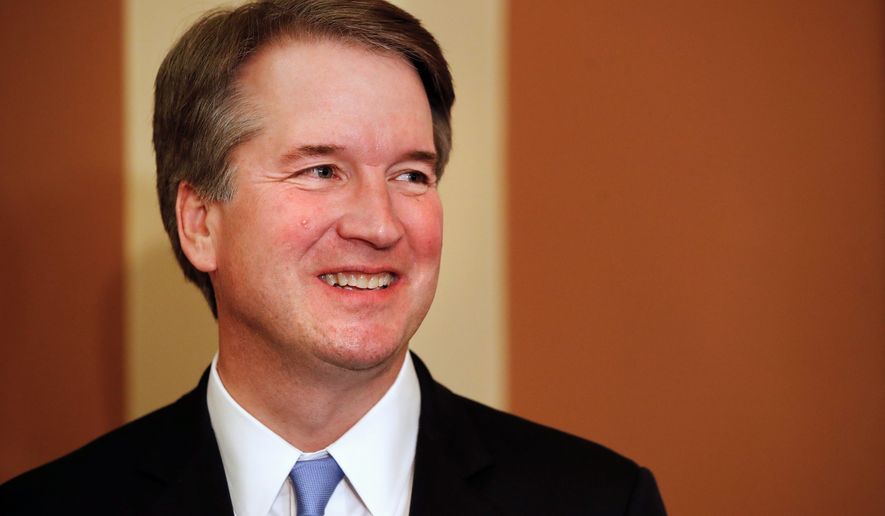Supreme Court nominee Brett M. Kavanaugh has seen almost every big legal clash during his 12 years on the federal circuit court in Washington and has the dissenting opinions to prove it.
Whether it’s illegal immigration, abortion, gun rights or Obamacare, Judge Kavanaugh has not been afraid to blaze his own trail apart from his colleagues on the U.S. Circuit Court of Appeals for the District of Columbia.
Those dissents — among more than 300 opinions he has written while on the court — lay out what defenders and critics alike say is a conservative approach to the law, with deference to the political branches and the administration in particular.
The dissents will also be prominent next month when Judge Kavanaugh faces senators for his confirmation hearing.
“He is a prolific writer and not afraid to dissent from the majority,” said Mitchell Rubinstein, a New York based lawyer.
Out of 29 “essential” opinions the judge wrote, according to the Congressional Research Service, 17 were in dissent from majority decisions, either on the merits of a case or sometimes on whether to hear the case in the first place.
He also notched a successful record on further review. Of those 29 opinions identified by the Congressional Research Service, the Supreme Court ended up hearing eight appeals of the same or similar cases. Judge Kavanaugh’s reasoning prevailed substantially in six of those cases.
Among those was his dissent in a 2011 challenge to the Affordable Care Act. In that ruling, he delivered a forceful argument that Obamacare was based on Congress’ taxing powers. Chief Justice John G. Roberts Jr. used much of the same logic to uphold the law in the Supreme Court a year later.
Judge Kavanaugh also broke with his colleagues in a case brought by Priests for Life, which objected to Obamacare’s contraceptive mandate policy. Under that approach, adopted by the administration, religious groups such as Priests for Life had to officially opt out of providing contraceptive coverage for employees. The priests said signing the form made them complicit in providing contraception, violating their religion.
Judge Kavanaugh said he would have ruled for the priests. He argued that fellow judges on the D.C. appeals court didn’t adhere to Supreme Court precedent. In that case, the Supreme Court eventually found the government was too burdensome on religious groups.
While social issues are likely to draw much of the attention on the judge’s record, legal scholars said Judge Kavanaugh has been a major player in the debate over the scope of presidential powers.
One of his opinions involved the Consumer Financial Protection Bureau, set up by Congress and President Obama in the wake of the Wall Street collapse last decade. Judge Kavanaugh ruled that the structure of the bureau was illegal because Congress had given too much independence to the director, who under the Constitution must be subject to presidential oversight.
Judge Kavanaugh was part of the majority on the three-judge panel that first heard the case — but the whole circuit, sitting en banc, later vacated his decision.
“You want a judge who has a healthy respect for each branch,” said Jamil Jaffer, a law professor at George Mason University. “That’s the kind of judge you see in Judge Kavanaugh.”
Chris Walker, a law professor at Ohio State University, said Judge Kavanaugh has written more than 120 decisions dealing with administrative law.
“Judge Kavanaugh is someone who is going to rein in the administrative state,” Mr. Walker said. “Judge Kavnauagh’s jurisprudence is motivated by separation of powers.”
The judge could also face questions concerning his decision to uphold the federal government’s bulk collection of metadata for national security reasons as well as a decision to vacate the conviction of a Guantanamo detainee who provided material support to terrorism.
Mr. Rubinstein said those rulings suggest the judge is a strong supporter of national security but has been bound by precedent, so dissecting his rulings won’t necessarily predict opinions if he is confirmed to the high court.
• Alex Swoyer can be reached at aswoyer@washingtontimes.com.




Please read our comment policy before commenting.